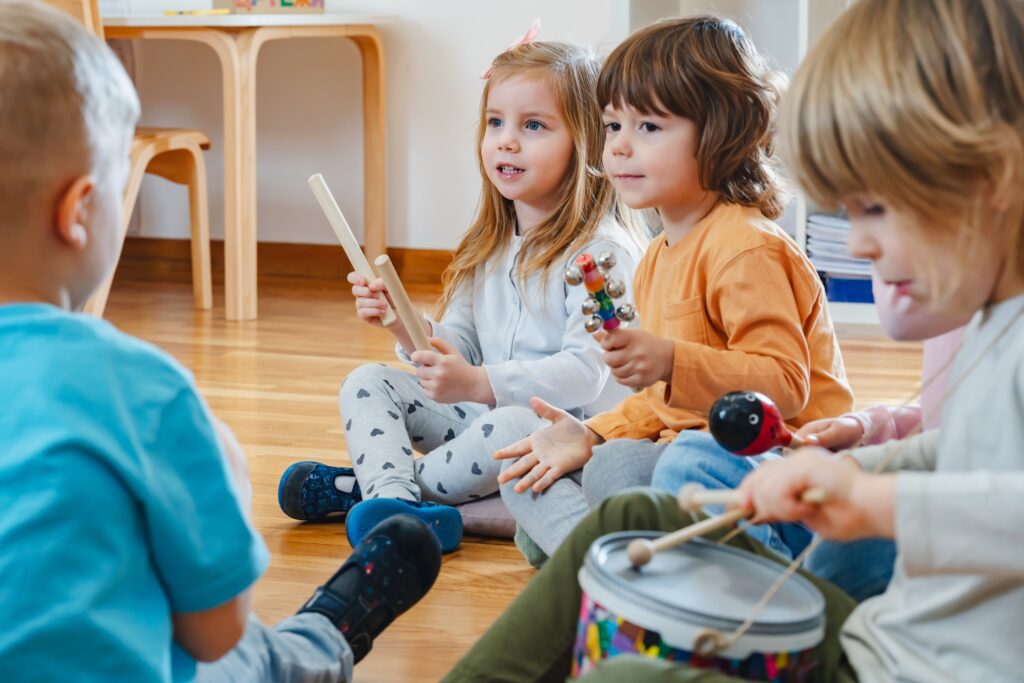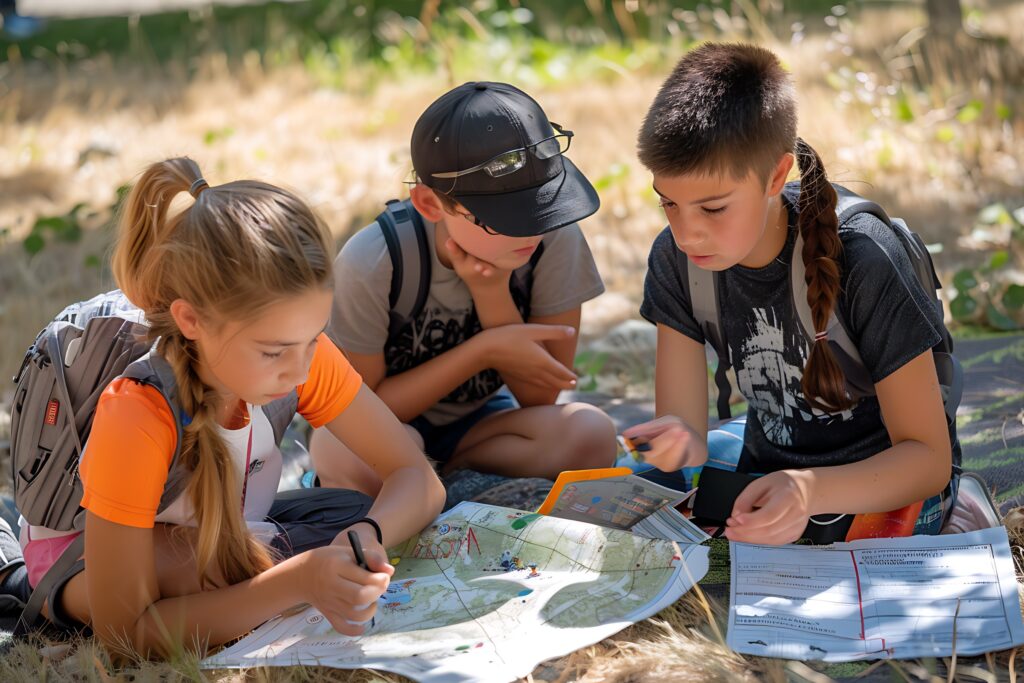“I already naughty”


How parents and educators can support a healthy self-concept in children
He had hit another child unprovoked.
An educator asked him, “Why did you do that Neil?”
“I already naughty,” he replied.
At only four years of age, this child has already established his identity as a ‘naughty child’. He was living up to his self-concept and acting his part. Self-concept is largely established by 5 years of age which makes the early years incredibly important in establishing foundations of understanding in the child that will carry them through life. A positive self-concept can’t be ‘given’ to a person, it must be constructed through experiences. Praise does not deliver the outcome hoped for.
Two primary personal needs of children are connection and significance. This helps form a positive self-concept as children understand themselves as loved and capable. But many parenting and educational patterns work contrary to these outcomes.
A child’s anti-social behaviour is often responded to with actual or implied rejection. This rejection might look like being expelled from the family or classroom, being sent to the corner, time out or even just ‘the look’ which implies a threat. Where children are removed from their connections without their autonomy over the decision it is a break in the connection. This doesn’t mean that children can never be alone. It simply means that the context of the situation matters.
Take, for example, a classroom that has a small tent in the corner with cushions and soft toys. A distressed and over-stimulated child might find the tent a soothing retreat and an opportunity to quiet their nervous system. A skilled educator may take a moment of emotion with the child and ask if ‘tent time’ would help them. A child might choose to escape the heat of the moment and retreat and recover. This context is entirely different when a child is sent to ‘tent time’ as a type of forced time-out – excluded from their important adults and their peers.
Other rejection phrases might look like these:
- “You can rejoin the group when I think you have thought enough about your choices.”
(This educator must be a mind-reader!) - “Stay in your room until I feel like dealing with you.”
- “If you can’t be nice to your friends, you can’t be with your friends.”
As well as more obvious statements like:
- “I don’t know why I wanted children.”
- “You are suspended from school. One more incident and you will be expelled.”
- “You aren’t wanted in this classroom when you disrupt the other children.”
As Jane Nelson says, “Connection before correction.” Fear of rejection drives many unhealthy adult habits. Training up a child in the way that he or she should go does not benefit from rejection-based strategies which only escalate a child’s angst. Why would rejection ever assist a person to develop social skills?
Connection, on the other hand, assists a child to regulate their emotions and scaffolds a calming of the emotion and enabling the rational brain to switch on. It is only by reaching the reasoning mind of the child that progress can be made. Many people correlate connection with a behavioural reward. In an economy of relationships built on transactional rewards and punishments, such a conclusion might seem logical. Supporting a loving connection in the midst of a disciplinary moment is not mutually exclusive. Hugging a child having a temper (if they are amenable to the idea), can both reinforce the connection, as well as reinforcing the boundary or decision.
“I can see you are very disappointed. (hug)
We sometimes have ice-cream after dinner. Not before.”
Another Jane Nelson quote, “Kind and firm.” Validate the child’s emotions, and support your own decision. Every time a parent caves to save the child’s unhappiness or to avoid a situation where they need to be the parent, the child learns how to manipulate. This is not the best training for adulthood.
The other facet of developing a healthy self-concept is significance. A sense of personal significance comes through experiencing capability. Whilst positive words can be helpful in any relationship, the use of praise to support the development of a healthy self-concept has been shown ineffectual. Praised used truthfully bears no fruit, and praise lathered inauthentically teaches manipulation.
What does contribute to significance?
In a word, achievement. The look of joy in a child’s face when they realise, “I did it!” is an expression of wonder. When a child has grappled with a task and then manages to complete, they learn both perseverance and that they can be successful. Adults see the seeds of this drive for achievement all the time. The toddlers say, “I do it!” and want to have a go.
Many adults, however, miss the opportunity to give capability to the child. They will tell the child, “When you are bigger”, or give them tools that are way too heavy for a child to handle, and teach the child failure so that the adult won’t be bothered again. Frequently in our hurried world parents intervene in tasks that children can do in order to ‘get out the door’. Some parents enjoy the opportunity to help their young child, allowing their love to make them servants to the child. Children become passive recipients of this pampering, both losing the capability they should be developing and an establishing an expectation of entitlement.
The journey from infancy to toddlerhood and further into preschool should be a slideshow of “I did it” moments. Grasping a hanging toy, pulling to stand, washing a dish, preparing a snack, building a tower, solving a puzzle and designing sandpit road system are some of the features of this slideshow. The Montessori approach fosters these moments by providing opportunities at the times in a child’s life that they are likely to be in the ‘sensitive period’ for that activity. The activities are placed in an environment that provides access at the child’s level, and without overwhelming numbers of items. Each activity has tools designed for small hands with developing bone structures, and are of an appropriate weight and length for a young child.
The Montessori environment is also a place of connection where each child is respected and belongs. The classroom is their ‘home’ and they are given autonomy and responsibility in the environment. Montessori supports both connection and significance.
Ingrained habits and phrases from our own childhoods are programmed in our operating systems and we find ourselves responding to situations sounding exactly like our own parents did! It takes conscious effort to change from rejection-based behaviour strategies and servant-like support for our children. The effort is worth it, however, as it is a cycle breaker. The children can grow up with a healthy self-concept, understanding that they are both loveable and capable. Instead of “I already naughty”, they will believe that kindness is natural, relationships are supportive, that boundaries exist and that they can persevere to achieve hard things.
For more support in your parenting and/or educator roles please visit:
Positive Discipline Course – Training in the Jane Nelson strategies
Building Futures Education – Training in Montessori education delivery and short courses
Your Child’s Day – Software/App to support educators in the documentation and communication of education and care in a Montessori service
Montessori Resources – Resources to support Montessori education
Helping children thrive is a shared journey. Spread the word and support fellow educators with insights and resources from Your Child’s Day.
Resources, advice, and uplifting stories for educators and families. No spam, ever.



